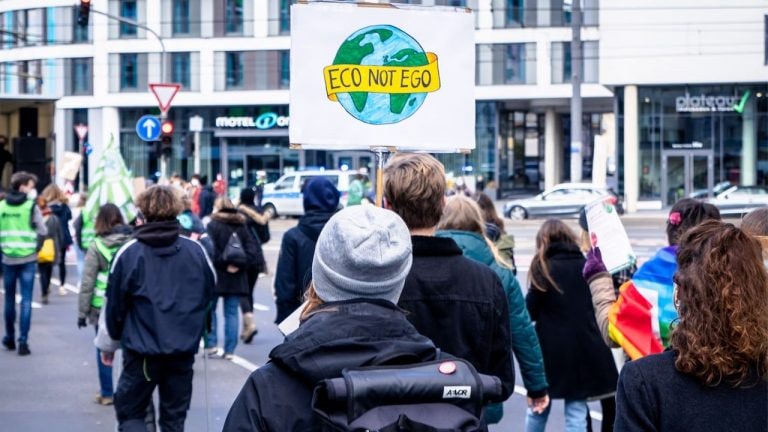Brand Makers
Priya Nair appointed new CEO and MD of Hindustan Unilever, replaces Rohit Jawa

By Tushar Goenka
On October 7, former Myntra CEO Amar Nagaram, now the co-founder of fashion company Virgio, said in a LinkedIn post that his startup had reached a “crossroads” just a year after it was founded. His comments were appended with a screenshot of the company’s website which said “The fast fashion brand you have come to love is no longer available.”
The post seemed to indicate that the startup, which has raised $37 million from Prosus, Accel, Alpha Wave and others, was shutting shop. However, the company is pivoting from fast fashion to sustainable clothing, as per Nagaram.
In an interview with Moneycontrol, Nagaram said that after running operations for about a year, he realised that fast fashion is harmful. “Fast fashion is no less than any devil,” he said. “Fast fashion companies use harmful fabrics and exploit labour to cut corners on pricing and quality, resulting in throwaway culture. We at Virgio want to change that by being a more sustainable company,” Nagaram added.
“Think of Shein and what it could’ve become if it was a sustainable fashion brand, that’s what we are going to be,” Nagaram told Moneycontrol.
By sustainability, he means that Virgio will now manufacture clothes with naturally available materials like cotton and not rely on human-made fabric like polyester. “That way our clothes can be used for longer," Nagaram said, adding that with this they'll be a part of a circular economy in fashion.
In a circular economy for fashion, clothes are built to last longer because of which their value is fully utilised. After the clothes have no value left, they are recycled which means its raw materials, like cotton, have other use cases, too.
“For several years, Chinese fast fashion sold polyester clothes to Gen Z and since their disposable income was lower they were fine with the material earlier. But now, they’re spending more and do not want to wear polyester clothes for hours, they want clothes that are more sustainable,” Nagaram said while explaining why his company decided to pivot.
Moneycontrol also reached to multiple investors in the firm over the weekend and at least three confirmed Virgio is not shutting down but is "doing something else", without providing more details. One among the three persons said the company was "pivoting".
Pivots are common in the startup ecosystem. Several companies pivot over the course of their existence until they find the right product-market fit (PMF). However, Virgio’s pivot is not because it had not found the right PMF.
“If we had not decided to pivot, we would touch an annualised revenue run rate of $5 million around this time. Our decision to pivot is going to in fact slow our growth for some time but it is needed for the future,” Nagaram said.
The company does not need additional capital for its pivot. Most of the $37 million that Virgio raised last year remains in the company’s bank account and gives the company a cash runway of three years, per Nagaram.
Along with the list of institutional investors, Virgio is also backed by angel investors including Cult.fit co-founder Mukesh Bansal, Cred founder Kunal Shah, Flipkart co-founder Binny Bansal, Ola co-founder Bhavish Aggarwal, Meesho co-founder Vidit Aatrey, angel investor Saif Ali Khan, Swiggy co-founder Sriharsha Majety, among others.
The Storyboard18 Digital Entertainment Summit (DES) unpacked India's strategy for leading the digital entertainment economy, with top policymakers where they putlined how talent, technology, and governance would fuel future-ready growth.
Read MoreAt the Storyboard18 Digital Entertainment Summit in New Delhi, policymakers and industry leaders outlined how talent, technology, and governance will drive India’s push to dominate the global entertainment economy.